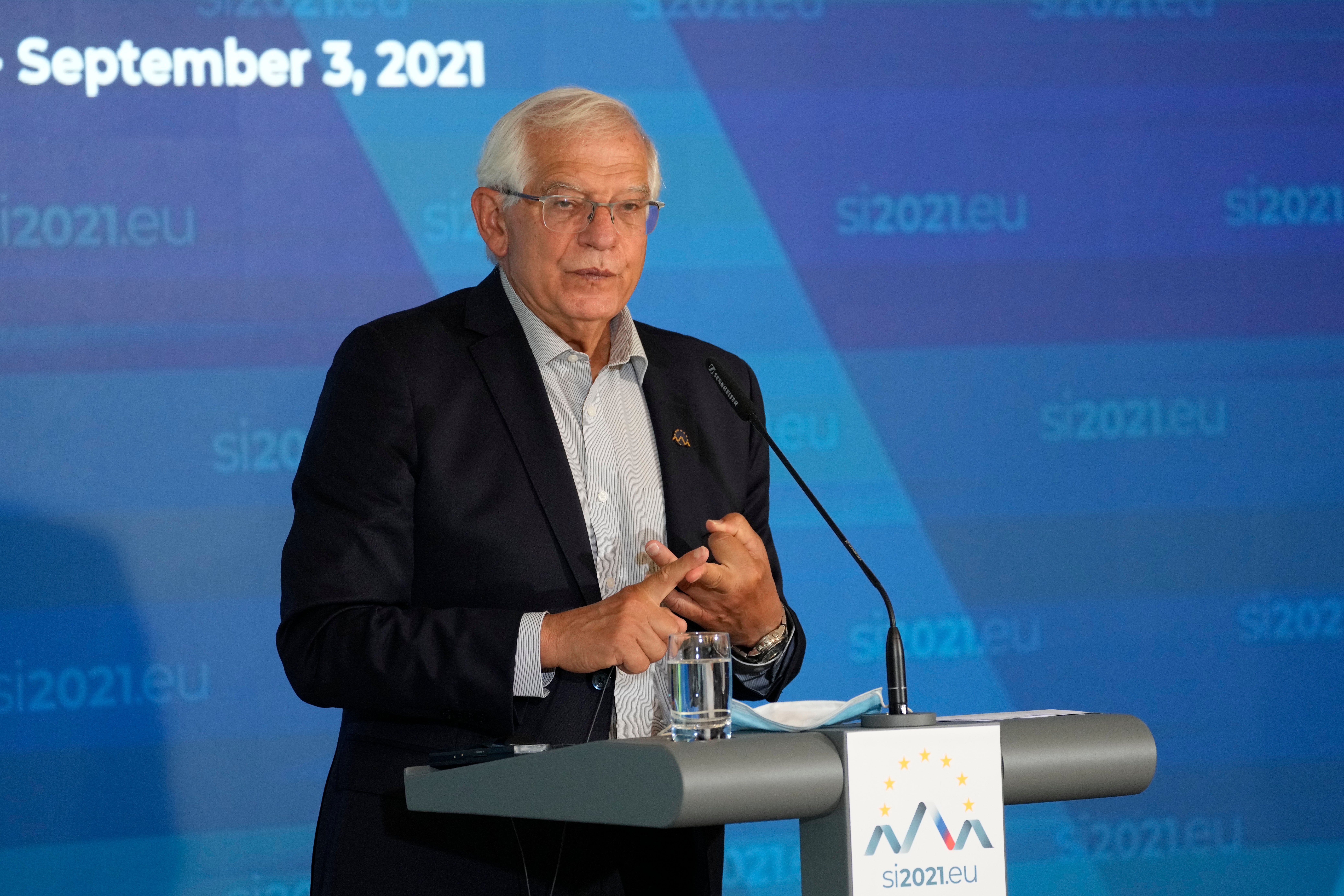EU ministers outline conditions for relations with Taliban
European Union officials have listed the conditions for defining the EU’s level of engagement with the Taliban as the new rulers of Afghanistan

Your support helps us to tell the story
From reproductive rights to climate change to Big Tech, The Independent is on the ground when the story is developing. Whether it's investigating the financials of Elon Musk's pro-Trump PAC or producing our latest documentary, 'The A Word', which shines a light on the American women fighting for reproductive rights, we know how important it is to parse out the facts from the messaging.
At such a critical moment in US history, we need reporters on the ground. Your donation allows us to keep sending journalists to speak to both sides of the story.
The Independent is trusted by Americans across the entire political spectrum. And unlike many other quality news outlets, we choose not to lock Americans out of our reporting and analysis with paywalls. We believe quality journalism should be available to everyone, paid for by those who can afford it.
Your support makes all the difference.European Union officials on Friday listed a set of conditions for defining the EU's level of engagement with the Taliban as the new rulers of Afghanistan including respect for human rights and the rule of law.
Following the Afghan government's collapse last month, the 27-nation bloc and its member countries have evacuated their diplomats from Afghanistan. But EU officials have said they are willing to cooperate with the Taliban now that they have returned to power.
The EU is focusing on delivering humanitarian aid, guaranteeing the safe passage out of the country of Afghan collaborators and employees who were left behind during the airlifts from Kabul and trying to prevent a mass exodus of refugees that could prompt another migration crisis in Europe.
Following meetings with European foreign affairs ministers in Slovenia, EU foreign policy chief Josep Borrell said that to gauge the Taliban's good will, the bloc would use several benchmarks.
They include a guarantee that Afghanistan won't become a base for “the export of terrorism to other countries," a commitment to free access for humanitarian aid deliveries, and adhering to standards in the areas of human rights, rule of law and press freedom.
“What is clear is that the future of Afghanistan remains a key issue for us,” Borrell said. “It affects us, it affects the region, the international stability, and it has a direct impact for European security.”
“At the same time, the ministers strongly insisted on the idea that we remain committed to supporting the Afghan population,” he said.
Borrell stressed that the EU also wants to see an inclusive transition government formed in Afghanistan and the Taliban to honor their pledge to let foreigners and those who fear for their lives leave the country.
“Our engagement will depend on the fulfillment of these conditions," Borrell said.
The EU has suspended development assistance to the Afghan government but has pledged about 1.2 billion euros ($1.4 billion) for the country for 2021-2024.
To ensure the evacuation of EU nationals and Afghan staff under the protection of member states and to assess how the Taliban respect the bloc's conditions, Borrell said that ministers agreed to establish a “joint European Union presence" in Kabul, if security conditions are met.
Foreign affairs ministers also acknowledged the need to coordinate with Afghanistan's neighbors through an EU regional political platform of cooperation aimed at stabilizing the whole region.
“This political platform will consider, among other issues, the management of population flows from Afghanistan; the prevention of the spread of terrorism; the fight against organized crime, including drug trafficking and human being smuggling," Borrell said.
Slovenian Foreign Minister Anze Logar, whose country currently holds the EU's rotating presidency, said such cooperation will try “to stop any future migration flows” to the bloc.